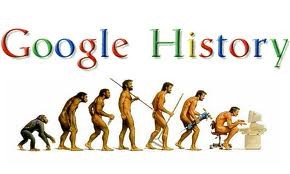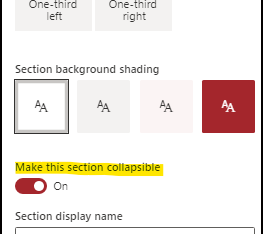What percentage of English internet users know the function of CTRL + F? What does tl;dr mean? Are you meta literate? What does it mean when someone spends a long time searching? What percentage of search queries take longer than 20 minutes and still cannot find the right answer? If you would like to know more about this, please keep reading.
Google and the universities
Google’s mission is: “To organize the world’s information and make it universally accessible and useful.” With the massive amount of data on the internet right now, Google’s challenge to make this happen is also huge, because how are you going to find the one thing you are searching for in such a big “data mountain”? Anyone understands that it is not strange that Google keeps in contact with universities and in some cases even sponsors them. An example of good sponsorship is “The Information Interaction in Context conference (IIiX) [1]”, a four day conference, which was held at Radboud university at Nijmegen where students, whom are working on IR, information retrieval, came from all directions to elaborate on their research.
Who is Daniel Russell?
During this symposium Google’s Daniel Russell (click his name for more background information) was present as a key note speaker. He’s ‘the Uber Tech Lead for Search Quality and User Happiness in Mountain View’ of Google. I had the pleasure of meeting and interviewing him after his key note speech. ‘Prevent becoming illiterate in your own domain’, is his message: During the keynote speech this message was mainly aimed at the numerous international students and professors present, who are busy with “finding and searching”. The emphasis was of course more on searching than finding. The question he posed was “Are you literate?” which stands for your ability to read and write in your own domain, in your own culture. In this case in the field of searching, search results etc.?
Are YOU literate?
Literate means that you should be familiar with and within your own domain. In case of writing text messages, you have to know the meaning of emoticons. Are you getting a response on an e-mail and it says tl;dr, then you have to know what is means. If you are on Facebook then it is essential that you know the Wall, etcetera. There will be many more domains with their own meaning. The development of tools and technologies and using them changes our lives. Many examples are at your fingertips. Just think about a new release of software, first it is annoying, but once you understand the potential and possibilities you realize that you cannot live without it. Domain knowledge is essential, because the more you make use of a domain, the more it will be searched. In that context: the readers with an IT background will definitely know what you can do with CTRL + F. Research amongst 2225 English internet users learned that 90.5 percent did not know the function of CTRL + F. When they were informed after the research of the function, a new world opened up for them.
The acceleration speed with which data growth is growing, is increasing itself.
Daniel Russell indicated that there is a trend, on which Gartner published earlier, of an enormous growth in data. He added that the acceleration speed in which the data growth is growing, is increasing itself as well. This is where Google takes responsibility by continuous development to improve, to ensure search ability of the massive amount of data and to present the search result swiftly. Gradually it is recommended to follow and keep up with the (new) possibilities offered by Google, in order to become and remain meta literate.
Did you know that:
Google implements more than 300 adjustments/changes each year? This can be a change in the user interface(UI), like an advanced search which can only be used after you have already typed your search (initially this was on the first page). It can be a change in Google analytics, which enables you to navigate through the bread-crumb, or a change to implement a timeline in Google Earth enabling you to view photos of a building over time for example. If you have noticed any changes yourself, please let us know in the comments section. Did you know that it cannot hurt to verify your search results by starting a second search? It turns out that a lot of users completely rely and trust the first presented search results and do not bother to check if they are valid results. For instance: You have searched for octopus and you click the following result: http://zapatopi.net/treeoctopus/ , where you can buy something. If the visitor of this site would have checked, he would have known that this is a spoof site. Hemingway once said: “Every man should have a built-in automatic crap detector operating inside him. It also should have a manual drill and a crank handle in case the machine breaks down” and this was already in the sixties. Wisdom is timeless wouldn’t you agree?
Then there was time for the interview:
What is the reaction of a user when he gets 11.700.000 results and 10 pages of search results and what happens then? Daniel Russell: The great number of alternatives could mean that the user has a lack of “search” experience or used a search that was too general. In practice the user has two options: he accepts the results offered by Google, which is the result of a question which has been asked by many users before, or the user searches through multiple pages of results. If this user has experience he will then make use of the advanced search option or further refine the search. How is the suggestion of a result achieved when you start your search? Daniel Russell: The suggestion is generated based on similar searches by other people, that increases the chance that you’re looking for the same thing. What is the impact on search results when you’re logged in, when you use a different pc or when multiple users use the same pc? Daniel Russell: Google aims to offer each user the best suitable result suggestions. This in itself can contain the answer. Take the example of a standalone pc and a family pc. In the first situation you will receive pure results, but if you use a family pc it could be that it has the profile of a car enthusiast with an affinity to cooking with a question about daycare centers and due to the profile will get a different answer. And you will receive different results again when you use Google anonymously (chrome: CTRL+Shift+N ) or as a logged in user. Is there a difference in the search behavior between men and women? Daniel Russell: This is not reflected in the technique, however we do not research this specifically, but we do research the subjects and the way women make decisions. This mainly concerns online shopping. Men search, find and buy. Just like in real life.
Finally some answers from the 1st paragraph
I still owe you a few answers from the first paragraph: Of the people who spent more than 20 minutes searching, 25% end up with the wrong search result. A long search gives an indication of: searching for knowledge, the motivation of the searcher, an interesting subject, search experience or the lack thereof, the goal of searching and the circumstances. It’s actually an implicit measure of the interest for the subject.
Host
Special mention for Prof Wessel Kraaij and his colleagues from Radboud university who hosted the fourth edition of the symposium and have organized a great event with a lot of foreign participants and with great sponsors, such as Google.
(13192)
Deze post is ook beschikbaar in/Also available in: Dutch






